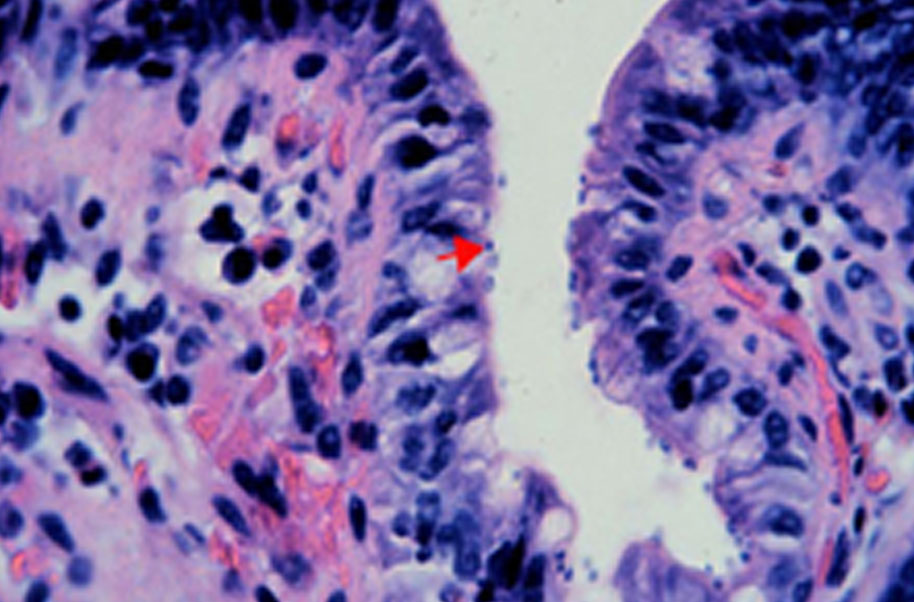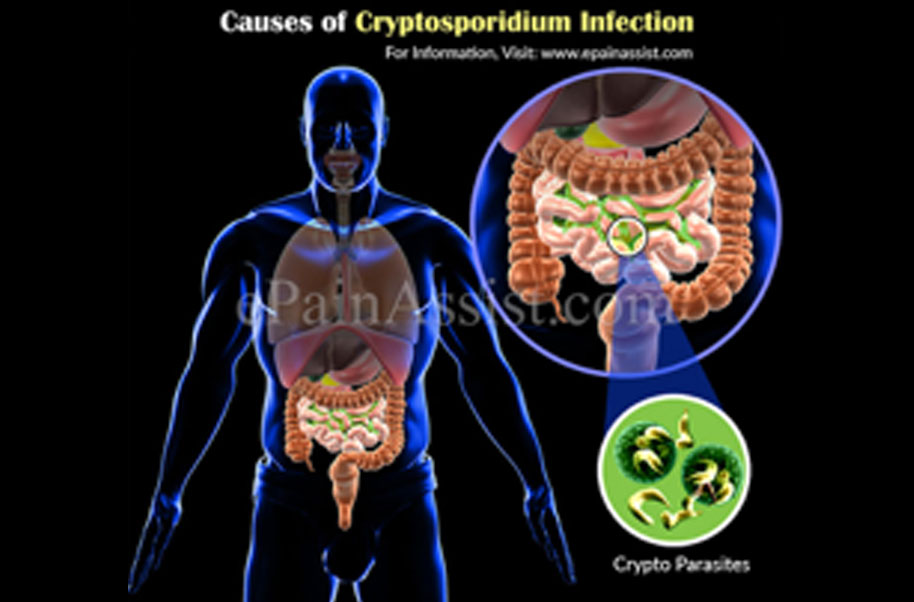Diseases
Cryptosporidiosis (Crypto)
Cryptosporidiosis, also known as crypto, is a parasitic disease caused by cryptosporidium, a genus of protozoan parasitesin the phylum apicomplexa. It affects the distal small intestine and can affect the respiratory tract in both immunocompetent (i.e., individuals with a normal functioning immune system) and immunocompromised (e.g., persons with hiv/aids or autoimmune disorders) individuals, resulting in watery diarrhea with or without an unexplained cough. In Immunocompromised individuals, the symptoms are particularly severe and can be fatal. It is primarily spread through the fecal-oral route, often through contaminated water; recent evidence suggests that it can also be transmitted via fomites in respiratory secretions.
Cryptosporidium is commonly isolated in hiv-positive patients presenting with diarrhea.Despite Not being identified until 1976, it is one of the most common waterborne diseases and is found worldwide. The parasite is transmitted by environmentally hardy microbial cysts (oocysts) that, once ingested, sporozoites within oocysts excyst (i.e., are released) and result in an infection of intestinal epithelial tissue.
Cryptosporidiosis may occur as an asymptomatic infection, an acute infection (i.e., duration shorter than 2 weeks), as recurrent acute infections in which symptoms reappear following a brief period of recovery for up to 30 days, and as a chronic infection (i.e., duration longer than 2 weeks) in which symptoms are severe and persistent.It May be fatal in individuals with a severely compromised immune system.Symptoms usually Appear 5–10 days after infection (range: 2–28 days) and normally last for up to 2 weeks in immunocompetent individuals; symptoms are usually more severe and persist longer in immunocompromised individuals. Following the resolution of diarrhea, symptoms can reoccur after several days or weeks due to reinfection.Based Upon one clinical trial, the likelihood of re-infection is high in immuno competent adults




Chitradurga
Seebara, Behind Indian Oil Petrol Bunk, Basavakumara Swamy Mutt, Chitradurga - 577504
Kunigal
K Huraliborsandra, Gowdgere Post, Dhomratti Temple Road, Kunigal, Tumakuru District. - 572130
Bengaluru
36, KG Gollarapalya, Bolare (P), Kanakapura Road, Bengaluru - 560082

